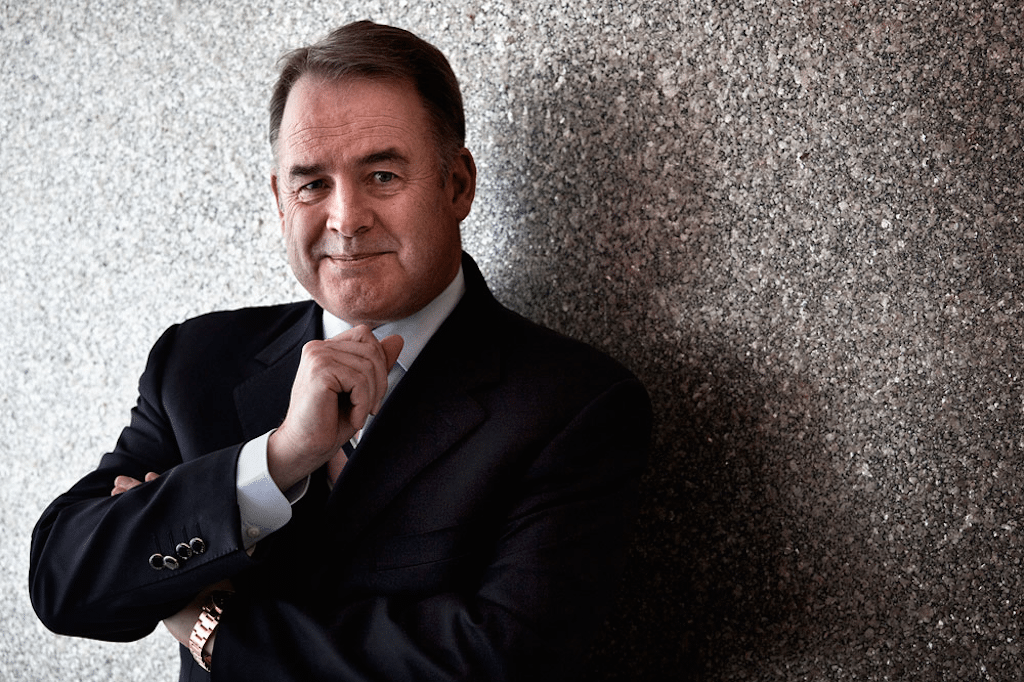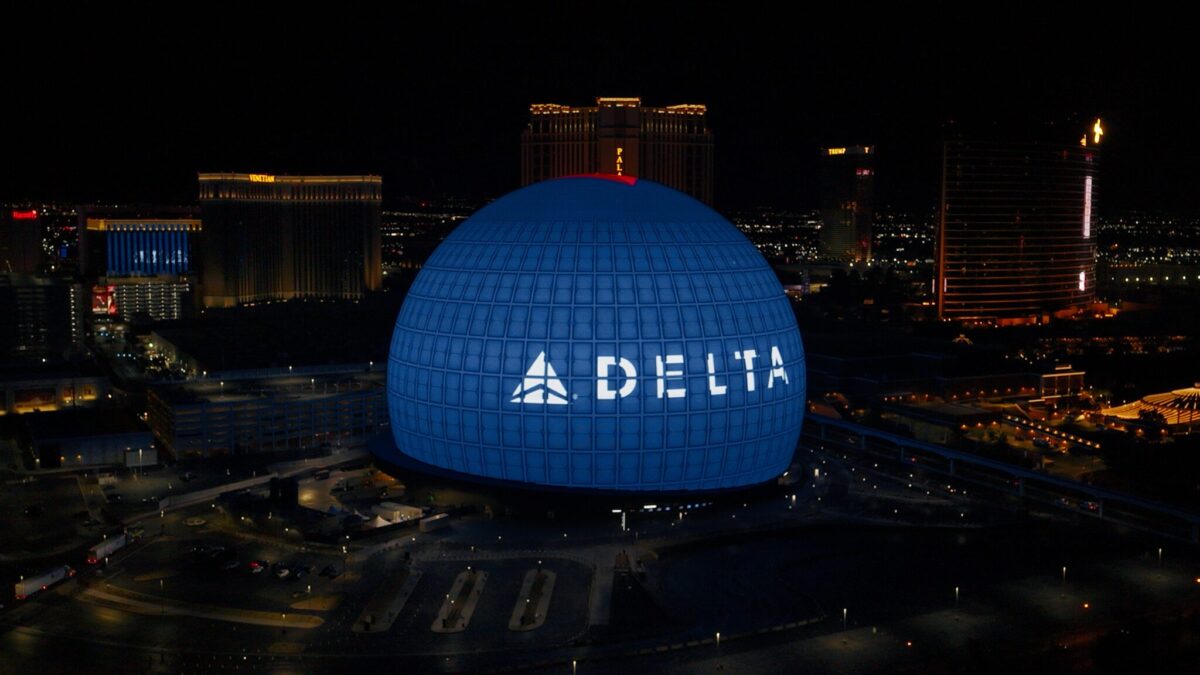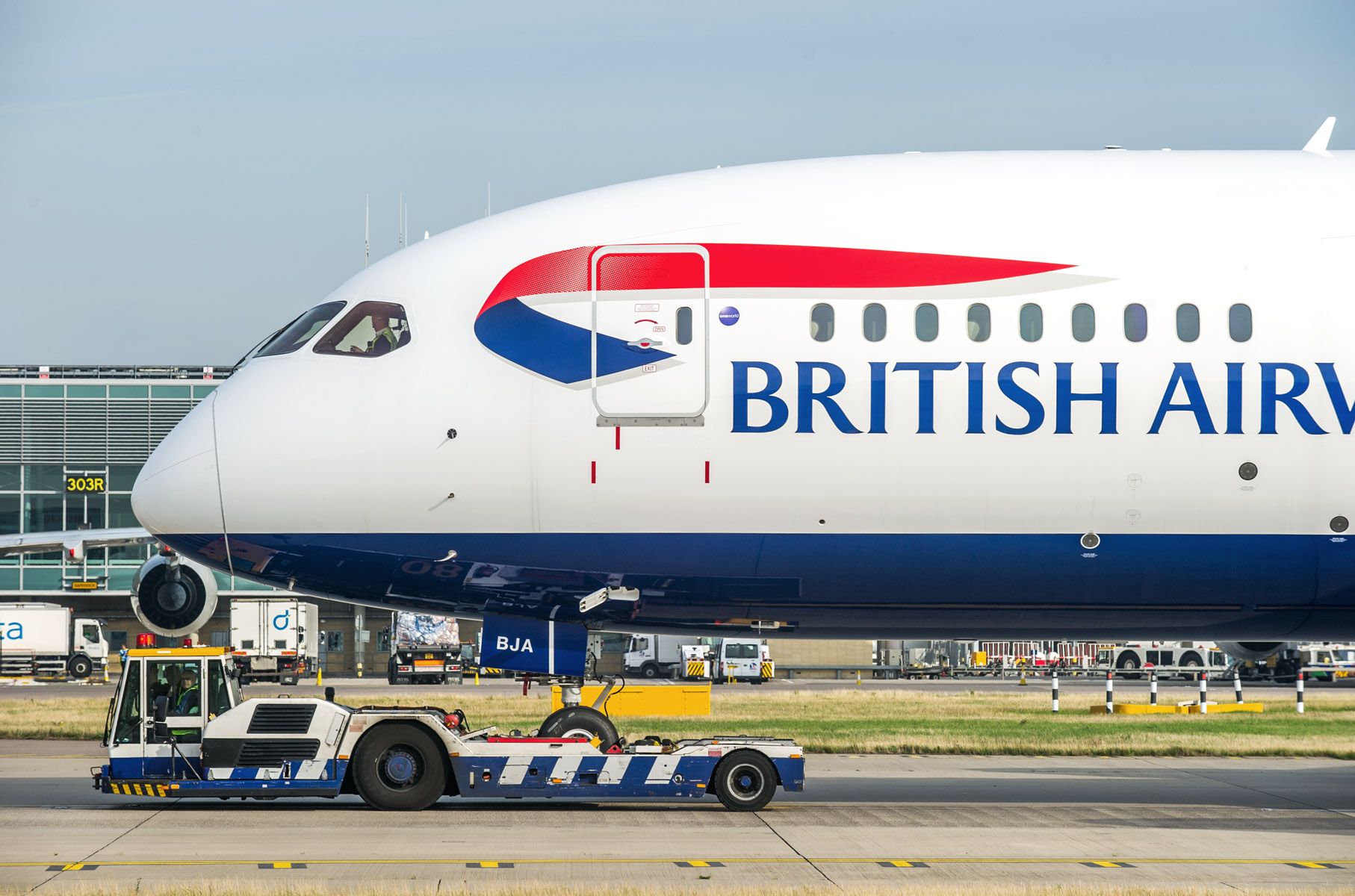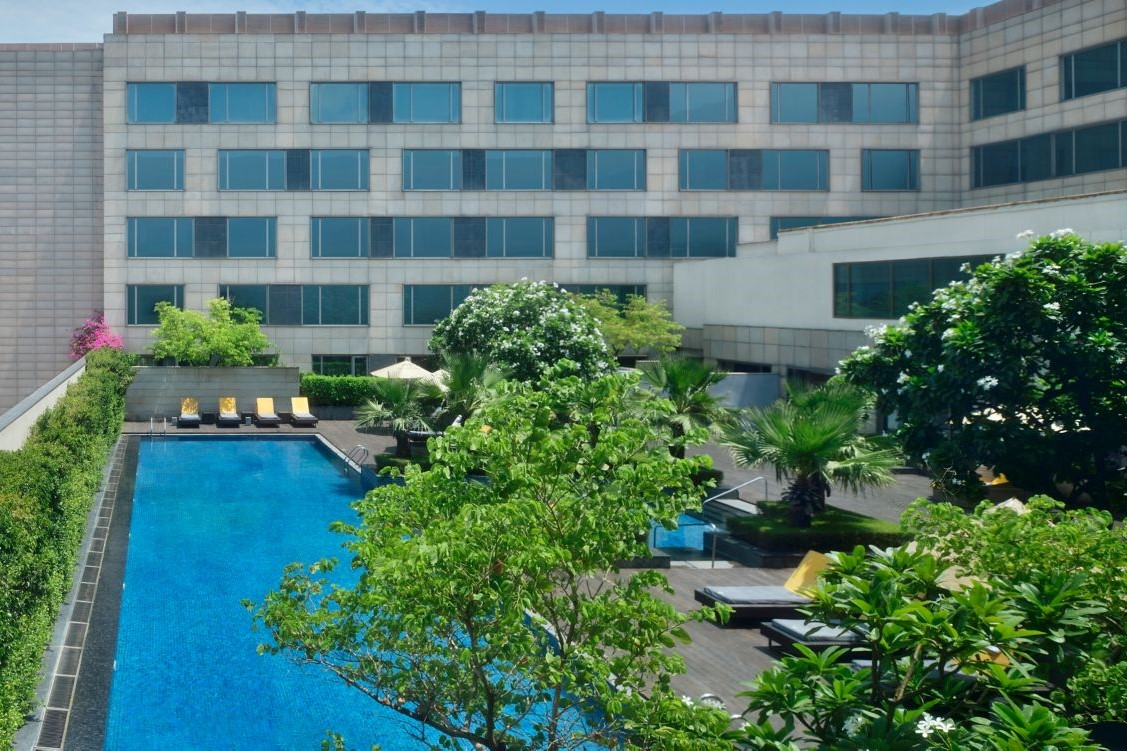Interview: Etihad CEO on Disrupting Alliances and the Passenger Experience

Skift Take
James Hogan, the CEO of Etihad Airways, sees his airline as a disruptor — and this has nothing to do with the Open Skies controversy.

With minority stakes in Alitalia, Air Berlin, Air Serbia, Virgin Australia, and others, the national airline of the United Arab Emirates has shunned the Big Three airline alliances in favor of these more nimble partnerships and is creating efficiencies while other airlines “duplicate their overhead,” Hogan told Skift.
These partnerships have turned Etihad Airways into the fifth largest airline group, Hogan says, and crew training, wide-body work, and back office operations for several of the carriers are under way in Abu Dhabi.
On the passenger experience front, Hogan argues that Etihad’s new Residence Suites, replete with living room, bathroom with shower, and bedroom, on its A380s are disruptive and a design breakthrough.
Meanwhile, on the Open Skies issue, Hogan acknowledges that fighting the three U.S. carriers’ “protectionist” approach is nothing new for Etihad, which has had to confront regulators from India to Australia.
“So we link markets where they have retreated,” Hogan says, referring to Delta, American, and United. “They have retreated, in some cases, to redeploy assets on transatlantic routes where they make more money. There are structural issues. I still codeshare with Air France-KLM. I do all the Air France-KLM flying over Abu Dhabi to Pakistan, to India, to Australia.”
“They don’t want to fly there themselves. It’s a game.”
With partners and press taking tours of the Residence Suite in the background at the Etihad booth at the Global Business Travel Association conference in Orlando July 27, Skift sat down with Hogan to discuss these hot topics.
Skift: Etihad seems to have attracted some attention from a few U.S. carriers.
James Hogan: The gulf carriers are not a threat to the U.S. market. We’re not a threat to the U.S. carriers. We represent 0.0006 percent of seats in and out of the U.S. In my opinion it’s about protectionism. It’s not about the consumer. It’s not about choice. And that’s what we bring.
We bring access to a part of the world that is growing in the Gulf, Middle East, India, South Asia and Southeast Asia that U. S. carriers don’t service mostly because they prefer to fly transatlantic and use their partner hubs to fly east. So the consumer would prefer to take the most direct route, and that’s the choice that we are offering.
Skift: So if you are not a threat, why are they all in a huff? They think you’re a threat.
Hogan: I think they see us as a threat because their European partners are being squeezed. They are obviously concerned about their freedom. We don’t operate transatlantic, but other gulf carriers do. You would have to take a global view of what the gulf carriers are doing, except for in the USA. To me, we are growing the market. We are proving that we don’t damage U.S. airlines. We grow traffic. We don’t damage jobs. We stimulate jobs throughout our operation and purchasing aircraft. So we responded on the docket. As far as I’m concerned, we have responded.
Skift: So where does the process stand? What are you hearing from U.S. and European authorities?
Hogan: This isn’t new to us.
Skift: It isn’t new?
Hogan: It isn’t new to us. From a regulatory affairs perspective there are bilateral challenges throughout the world, whether it’s India, whether it’s Australia. This is the process. In regards to the U.S., we have responded. It’s in their hands now. We will see how they will review the submissions. Our response has been very comprehensive. We are being very clear in the business model. We are being very clear in the way we work. While this is happening, we continue to program our relationship with American Airlines.
In regards to Europe, it’s probably a little bit different. In Europe, we also invest in European airlines. If we hadn’t invested in Air Berlin or Alitalia, they would have gone out of business. So we invested in those airlines to help us achieve access to the market. We invested in those airlines to increase our net worth because we think it’s a smarter way to work, when you look at net worth, frequent flyer and unit-cost reduction.
I have met with the EU commissioner about six weeks ago. I had a very good chat with the EU commissioner. They are looking at the mechanism. I’ve got no problem in a mechanism that is fair. But when you have airlines that go into Chapter 11 and that can’t be done anywhere else in the world. Where you have state-owned airlines that 15 to 20 years ago may have been privatized, all of those assets were handed over for a dollar, including slots, it makes it harder to establish an airline.
If you look what I have done in 11 years. We had nothing. So we had to build offices, train pilots, hire engineers, build a brand. I wasn’t gifted an airline. So the cost of entry is far greater because you have to get to a position to compete. But when we sit and discuss the business model, go through the structure of our company for Europe as for America, that access over the Gulf to India, South Asia and Australia is very important.
So we link markets where they [the U.S. carriers] have retreated. They have retreated, in some cases, to redeploy assets on transatlantic routes where they make more money. There are structural issues. I still codeshare with Air France-KLM. I do all the Air France-KLM flying over Abu Dhabi to Pakistan, to India, to Australia. They don’t want to fly there themselves. It’s a game.
Skift: You referenced Air Berlin and Alitalia, and you say that the airline alliance model is fractured and you see yourself as a disrupter. So what’s ahead?
Hogan: Well, look, I think it is fractured. We wouldn’t have 50 codeshares now. These airlines, most of them have alliances. They work with us. The alliance has always been dominated by the major players if you look at all of them. If you are a minor player, your voice is very low around the table. There is a huge amount of cost you have to incur to be part of an alliance. With that partnership, we invest, but there is no membership fee. We all sit around the table and make decisions and move fast. Which is a big advantage. The alliances are very bureaucratic. When I talk to CEOs of other airlines, what are they interested in? How can they move more customers through their system. That’s what they are focused on.
And Etihad isn’t another alliance. We are a large aviation group, the fifth largest aviation group in the world. Obviously, the key is that we are investing in all of these airlines.
Skift: Delta is doing both. They are investing in airlines and they are in an alliance as well.
Hogan: Yes, but Delta is the driver of the alliance. They are a dominant player. We couldn’t enter the alliance being a dominant player. If I was a dominant player, that’s a different story, but we are not. So why lose focus? We are very clear in our business model. We are very clear in the investment of product and service and how we differentiate. Air Serbia was totally rebuilt. It is probably one of the best small European airlines now for their service, their product. All the cabin crew were trained with us. Air Berlin, step by step, we are getting back because we have already trained 1,500 cabin crew in Abu Dhabi.
Skift: How is that integration going?
Hogan: Very good. But we work well with all of the airlines. Because when you are an investor, you’ve got skin in the game. But what’s more important is that we are looking for centers of excellence. So where is the best place to have our training? Is is Abu Dhabi? Great. Is it Rome? Fantastic. Where is the best place for your process? Is it in India? Let’s put it in India. If you go to a hotel, you have five restaurants and one kitchen. This is the same concept. Because airlines all duplicate their overhead. So how do we reduce the cost, leverage our scale to improve our service?
Skift: What’s an example of how you’ve consolidated these types of services?
Hogan: We are doing the widebody work in Abu Dhabi, the retrofit work. All of the 787 pilot training will be in Abu Dhabi. We are doing cabin crew training in Abu Dhabi. If you took Air Serbia, most of their back office is in Abu Dhabi. So they are using our systems. So it’s about the process.
Skift: Apart from this minor issue (haha) of Open Skies, what do you think are the big things at this GBTA conference or globally that business travelers have to be concerned about?
Hogan: I think that business travel is going to be in a year where, with technology and information, they have great access to choice. I think that’s what has changed dramatically. In the past, it was very hard for a traveler to interrogate the product and service, and access information on productivity. I think the information that the traveler has today, and that the travel manager has today, is exceptional, which means that airlines have to also be up to their game in regards to their offerings, their punctuality, their service, their baggage systems. I think the bar has certainly risen. I think that each airline in each region tackles those differently. Obviously, we have invested in service and that’s what we have here. The halo effect of the Residence has been huge. But when we looked at it, it was important that we could sell it.
I didn’t take away the seat counts so we got the economics on the aircraft right. Much less wasted space. So how you continue to innovate. Looking at booking systems [global distribution systems] moving forward, you are going to have the product. When you can go online, you will see that this is the first cabin, and you will see first class. So keeping up with the information for the consumer in business travel is key.
Skift: Are you guys getting involved with IATA’s new distribution technology?
Hogan: Yes.
Skift: What about the surcharges that Lufthansa plans to levy on bookings outside its own channels? What’s your take on that issue?
Hogan: I’m watching the surcharges. Let’s see what happens. Obviously, because we do invest in two European airlines, we are watching it carefully with Air Berlin and Alitalia.
Skift: On the product side what can you do after the Residence Suites?
Hogan: It’s all about consistency of service and that every flight will meet the expectations of the guest. So the focus is on training, training. Training is fundamental. Over the next five years, you will see commonality in two-class cabins between us and Alitalia and Air Berlin. Keeping their personality but still giving consistency on service.
This is great for the A380. We only have 10. We have 71 787’s, for example, and the 787 product is outstanding and so are the economics. of the 787.
With what we have done here, we started planning it six years ago. So now we have a think tank. We are looking at the next phase.
Skift: It may take another five or six years, right?
Hogan: This was design breakthrough. When you get a design breakthrough, you can reduce it.
Skift: Reduce the cost?
Hogan: What’s the cost? What’s the weight? Can you get the seat count right?
Skift: Apart from how beautiful the Residence Suites look, what is the design breakthrough?
Hogan: I think the design breakthrough on the A380 is obvious. There is nothing like it in the world. On the 787 and A380, this (business studio) is a posh product. We got the seat count right. You’ve got your space. Everybody has an aisle and you’ve got space. I think it’s better than a lot of airlines’ first class. And we are just selling it. It’s unbelievable. The routes are selling fantastic.
Skift: In the U.S.., we are all focused on your competition with Delta, American and United. How do you view your competition with other Gulf carriers like Emirates?
Hogan: I think we have raised the bar. I think the market is saying we have raised the bar. That’s the hard stuff. That’s service to delivery. That’s systems at reservations or online, at check-in, in the lounge, on the aircraft, when you arrive, when you get your bags. What’s important to me is how it all comes together.
Skift: This is a little off-topic but how do you like this job? Is this what you expected? Do you like being in the line of fire and creating what you are doing?
Hogan: I have been an airline CEO for 14 years. When you build a business from scratch, it is quite a unique journey. When you think five years ago no one knew who Etihad was, whereas today we are seen as a global leader and a global brand, and innovative, disruptive and meeting the expectations of my shareholders. And great people. We have over 24,000 people from all different nationalities who have all come together to build this business. And then winning and the business winning. That’s good.





